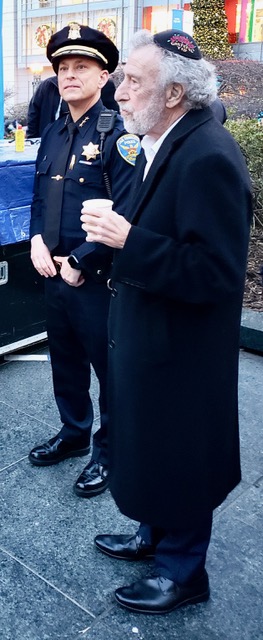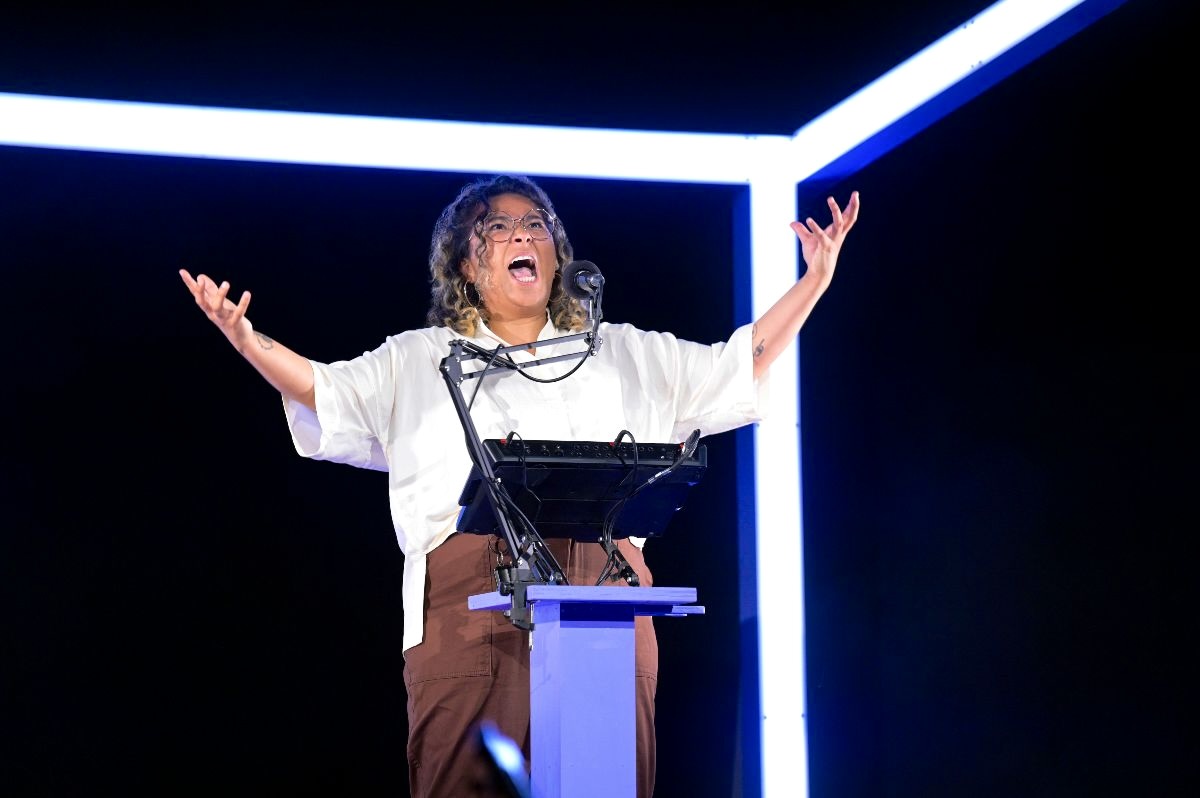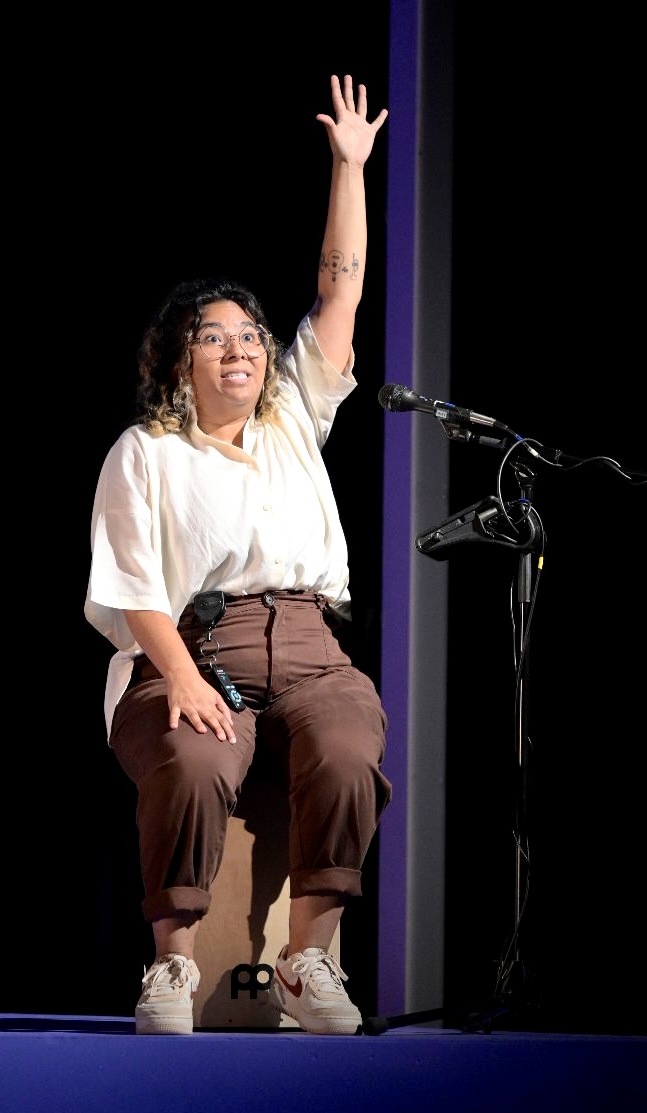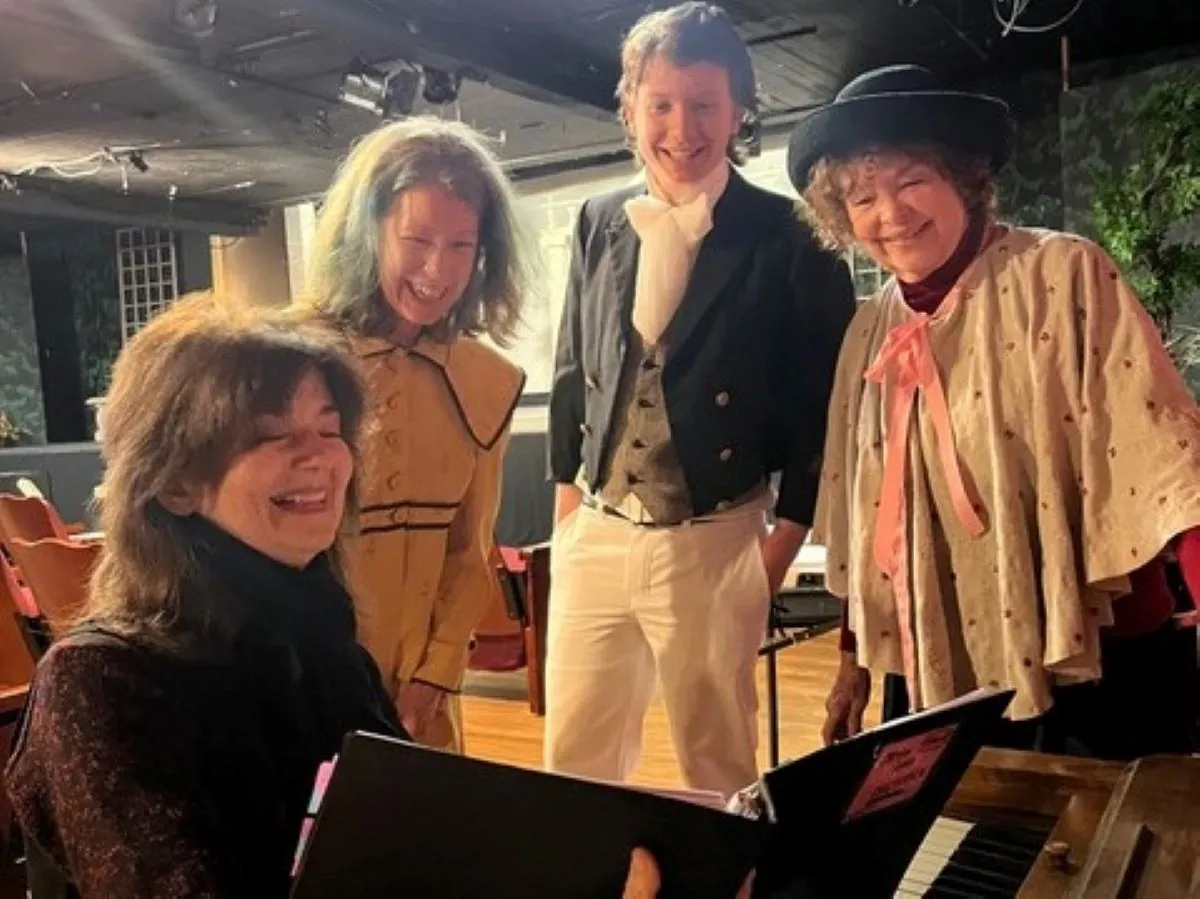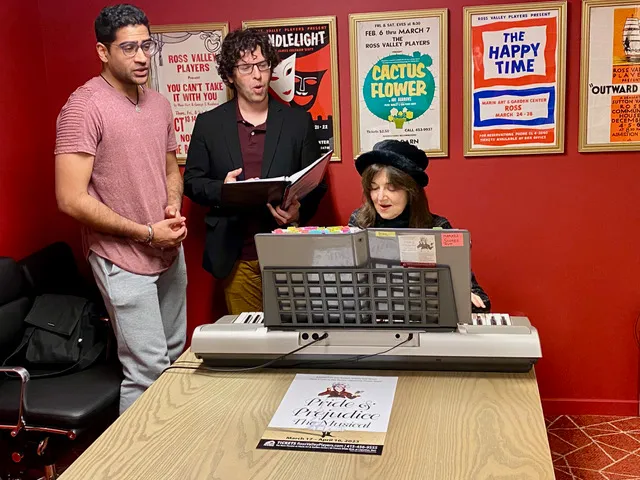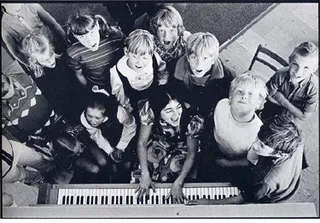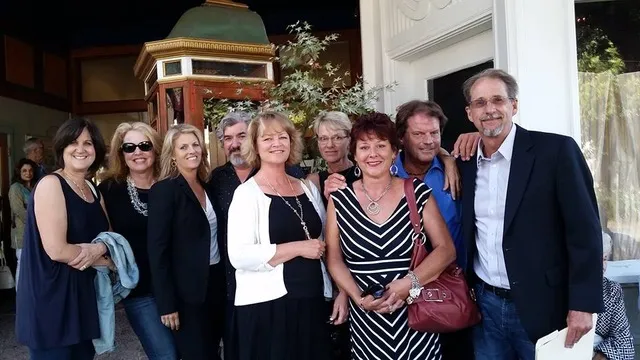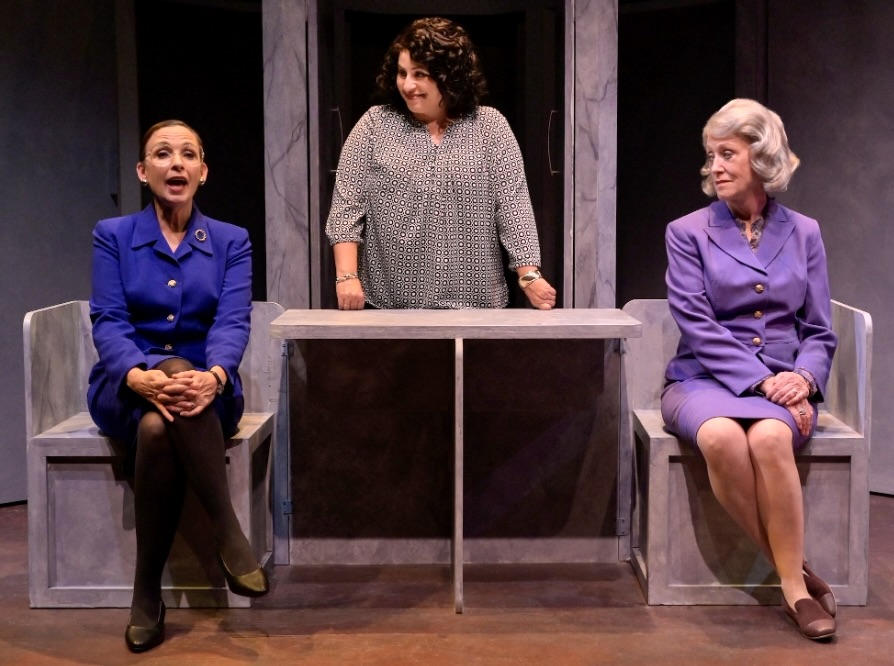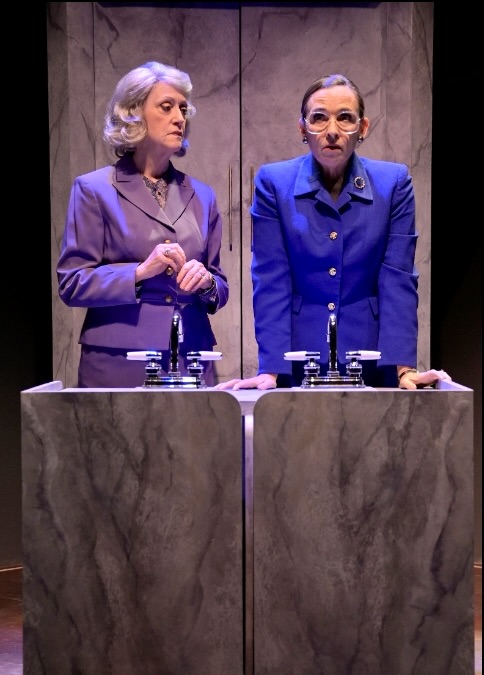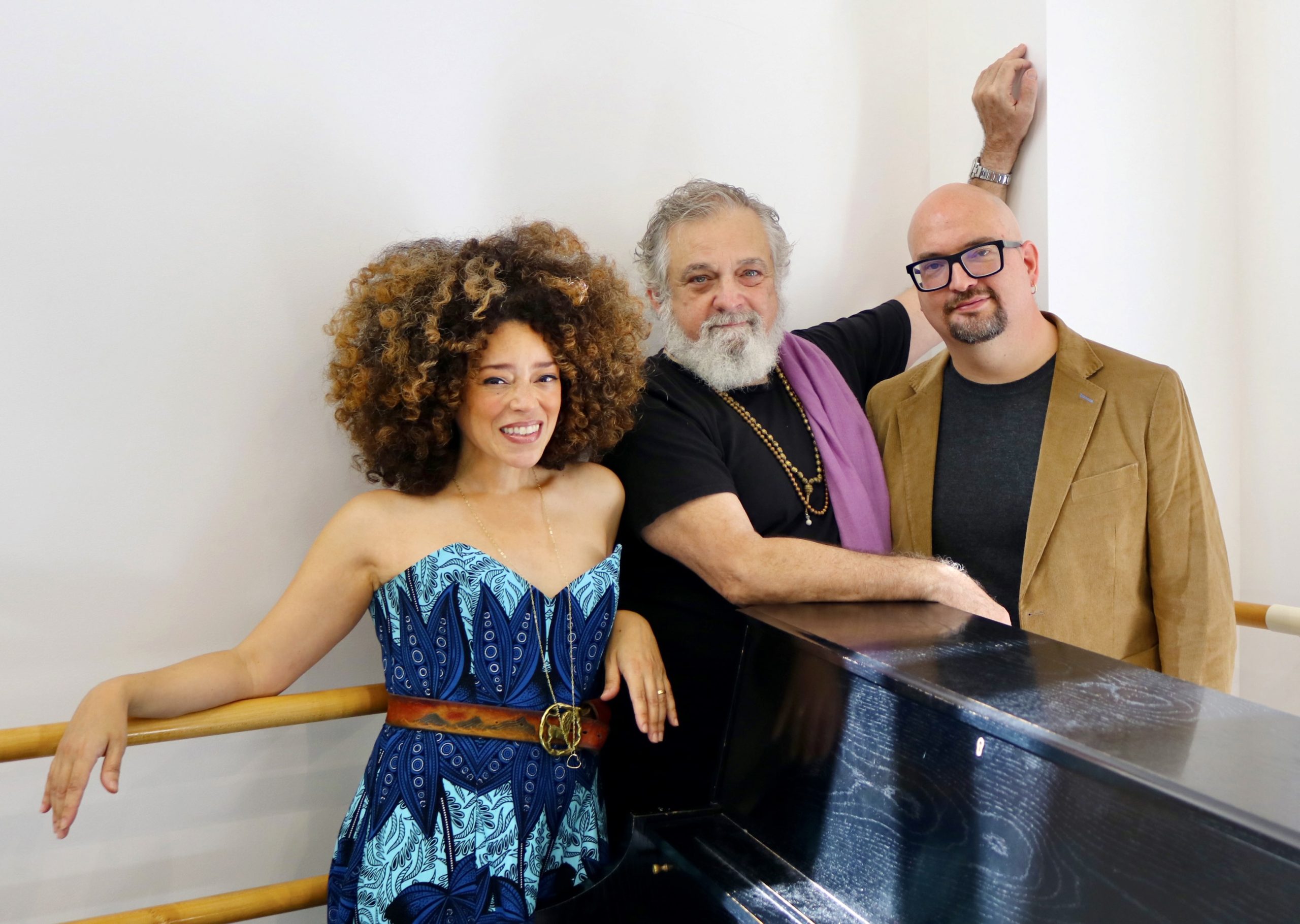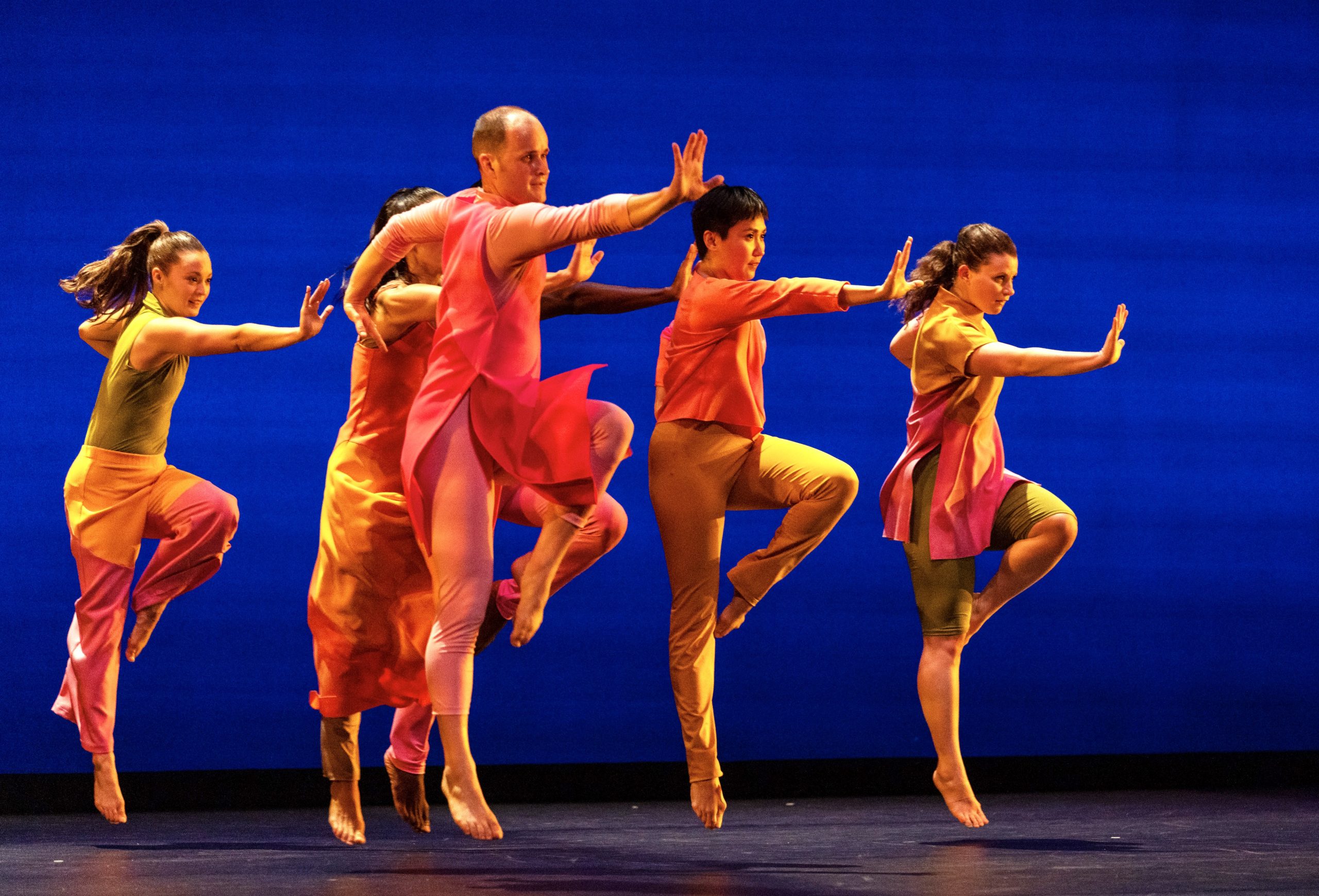 Val Caniparoli’s “Tutto Eccetto Il Lavandino” is a highlight of Smuin’s “Dance Series 1” onstage in San Francisco through Oct. 7. (Courtesy Chris Hardy)
Val Caniparoli’s “Tutto Eccetto Il Lavandino” is a highlight of Smuin’s “Dance Series 1” onstage in San Francisco through Oct. 7. (Courtesy Chris Hardy)
When you think of dance, you often think of feet, but Smuin Contemporary Ballet’s latest production, marking its 30th anniversary, showcases many splendored hand and arm movements.
They come during the first of three pieces in the show: “Tutto Eccetto il Lavandino” in Italian, or “(everything but the kitchen sink).”
The ballet, created by choreographer Val Caniparoli for Smuin in 2014 to Vivaldi’s sprightly music, takes what might ordinarily be perceived as jerky gestures, even arms that flap like chicken wings, and turns them into flawless, synchronized art.
The variety of lithe, smooth and magical movements in the presentation (as well as countless twists and turns) is equaled only by the variety of dancer combinations (from solos to duets, including man on man, to a cluster of seven, then a group of five couples).
Noteworthy, too, is the athleticism of all 16 dancers in the company.
The 11-part modern ballet is not all straight-ahead. There are more than a few moments of silliness, including a round of hand-covered open mouths spouting “oh” and an unexpected object that glides to center stage at the end of the piece.
Celia Fushille, the troupe’s artistic director who will retire at the end of the 2023-24 season after three decades with the company, says the piece “explores a range of emotions, while pushing the dancers’ technical strength, precision and artistry.”
In the program, she says that the ballet, which has been performed by other companies across the country, “reminds us of the place we hold as an incubator of new work.”
 Smuin dancer Terez Dean Orr steps through (L-R) João Sampaio, Brandon Alexander and Ian Buchanan in James Kudelka’s Johnny Cash tribute, “The Man in Black.” (Courtesy Chris Hardy)
Smuin dancer Terez Dean Orr steps through (L-R) João Sampaio, Brandon Alexander and Ian Buchanan in James Kudelka’s Johnny Cash tribute, “The Man in Black.” (Courtesy Chris Hardy)
James Kudelka’s “The Man in Black,” the middle act of “Dance Series 1,” is based on Johnny Cash’s covers of tunes by the likes of Gordon Lightfoot, Bruce Springsteen and John Lennon and Paul McCartney.
Like “Tutto Eccetto il Lavandino,” it’s a revival; the debut was in 2010. One woman and three men, all clad in cowboy boots, jeans and phlegmatic facial expressions, stomp noisily and incorporate popular county-and-western styles such as step-dancing, square dancing and swing — with some extraordinary syncopation. The quartet works unbelievably hard. When the men forcefully shake their arms, torrents of sweat coat the stage.
 Douglas Melini’s artwork is featured in the premiere of Darrell Grand Moultrie’s “Salsa ’til Dawn” in Smuin’s “Dance Series 1.” (Courtesy Chris Hardy)
Douglas Melini’s artwork is featured in the premiere of Darrell Grand Moultrie’s “Salsa ’til Dawn” in Smuin’s “Dance Series 1.” (Courtesy Chris Hardy)
The third dance, the six-part “Salsa ‘Til Dawn,” a world premiere with choreography by Darrell Grand Moultrie set to the Cuban jazz rhythms of Grammy-winner Charles Fox, doesn’t get fascinating (unless you’re thrilled by women dancing in heels rather than ballet shoes) until the finale, when the full company bounces and slithers in front of a backdrop of three huge pieces of colorful art by Douglas Melini.
During intermission, Fushille accurately suggested to an audience member in the front row that watching it would be like being at a salsa party. Moments earlier, she admitted to another dance enthusiast in that row that a first-time experiment in which narrated auditory devices aimed at helping sight-impaired patrons understand what was happening on stage didn’t work as well as expected.
Virtually everything else did, though.
Smuin’s “Dance Series 1” continues through Oct. 7 at Cowell Theater, Fort Mason Center, 2 Marina Blvd., San Francisco. Tickets are $25 to $89 at (415) 912-1899 or smuinballet.org
This story was first published on LocalNewsMatters.org, a nonprofit site supported by Bay City News Foundation http://www.baycitynews.org/contact/.
Woody Weingarten, a longtime member of the San Francisco Bay Area Theater Critics Circle, can be contacted by email at voodee@sbcglobal.net or on his websites, https://woodyweingarten.com and https://vitality press.com


 Chantell Jeannette-Black’s “I Dream” is among the artworks in the exhibit “The Only Door I Can Open: Women Exposing Prison Through Art and Poetry.” (Photo courtesy Minoosh Zomorodinia)
Chantell Jeannette-Black’s “I Dream” is among the artworks in the exhibit “The Only Door I Can Open: Women Exposing Prison Through Art and Poetry.” (Photo courtesy Minoosh Zomorodinia)



